Litopia Writers’ Reading List 2024

Peter Cox, founder of Litopia
I asked our members a simple question.
Which books have had the most profound impact on your development as a writer?
Here’s what they told me. A glorious cornucopia of more than forty definitive titles that ought to be on your reading list.
And note: if you buy them all (why not?) it will still be cheaper than taking one average-priced commercial writing course.
We’ve all enjoyed putting this list together, and we hope you get as much out of it as we have.
Peter Cox
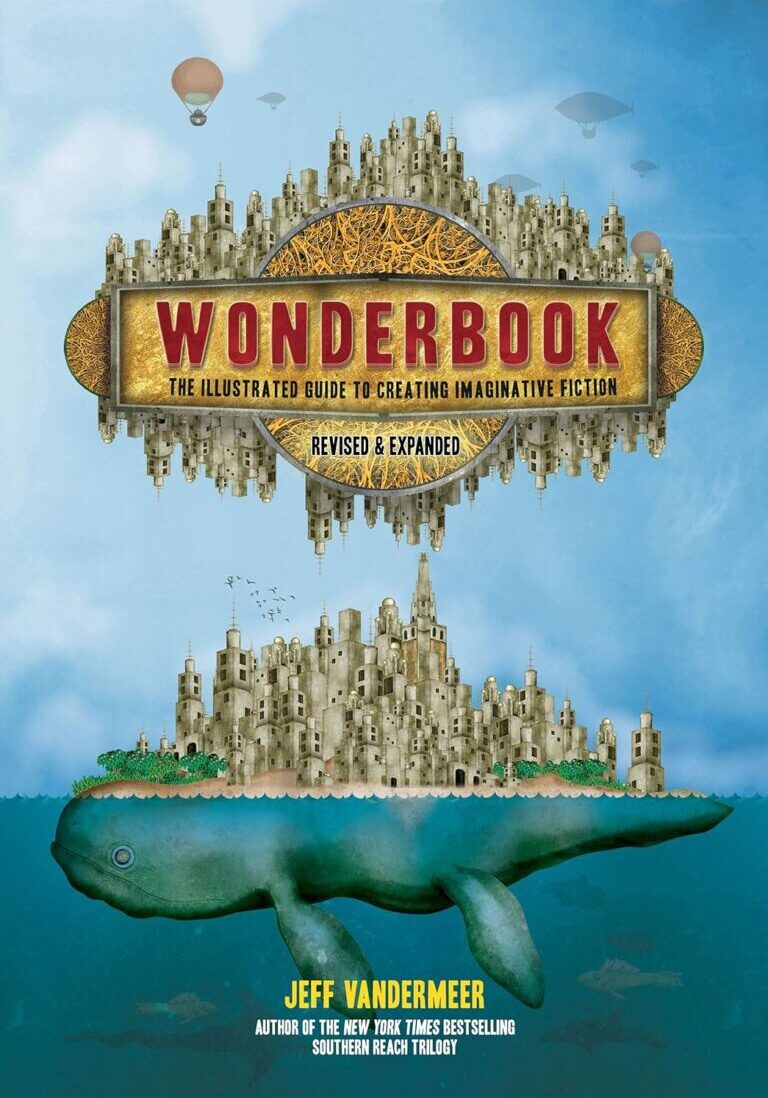
Wonderbook (The Illistrated Guide To Creating Imaginative Fiction) by Jeff Vandermeer
Our Summary
For genre lovers. Practical information on plotting, structure, characterization, dialogue, exposition, worldbuilding, and POV while packed with exquisite and imaginative visuals. This is a beautiful, wild, and crazy book with contributions from various well loved authors like Neil Gaiman, Ursula K. Le Guin, George R. R. Martin and others. Dense and rich and wonderful.
What I learned From It
It encouraged me to not just embrace my imagination, but to push it as far as it will possibly go.
LJ Beck
[maxbutton id="1" url="https://amzn.to/46vjh1z" ]
[maxbutton id="2" url="https://amzn.to/3RbbhOH" ]
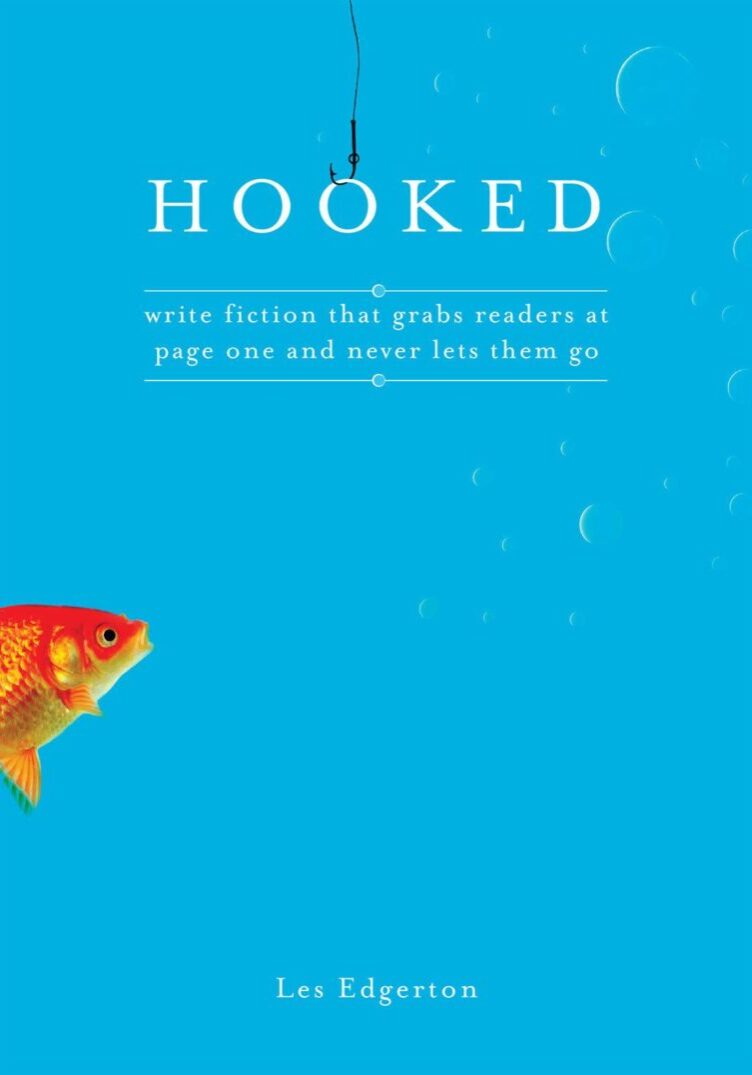
Hooked by Les Edgerton
Our Summary
The focus is on great openings and keeping the reader hooked including advice on this from agents and acquiring editors.
What I learned From It
Lots about inciting incidents; balancing backstory in the set up; keeping readers going from one chapter to the next.
Trey
[maxbutton id="1" url="https://amzn.to/3N0OH95" ]
[maxbutton id="2" url="https://amzn.to/3MXZgJY" ]
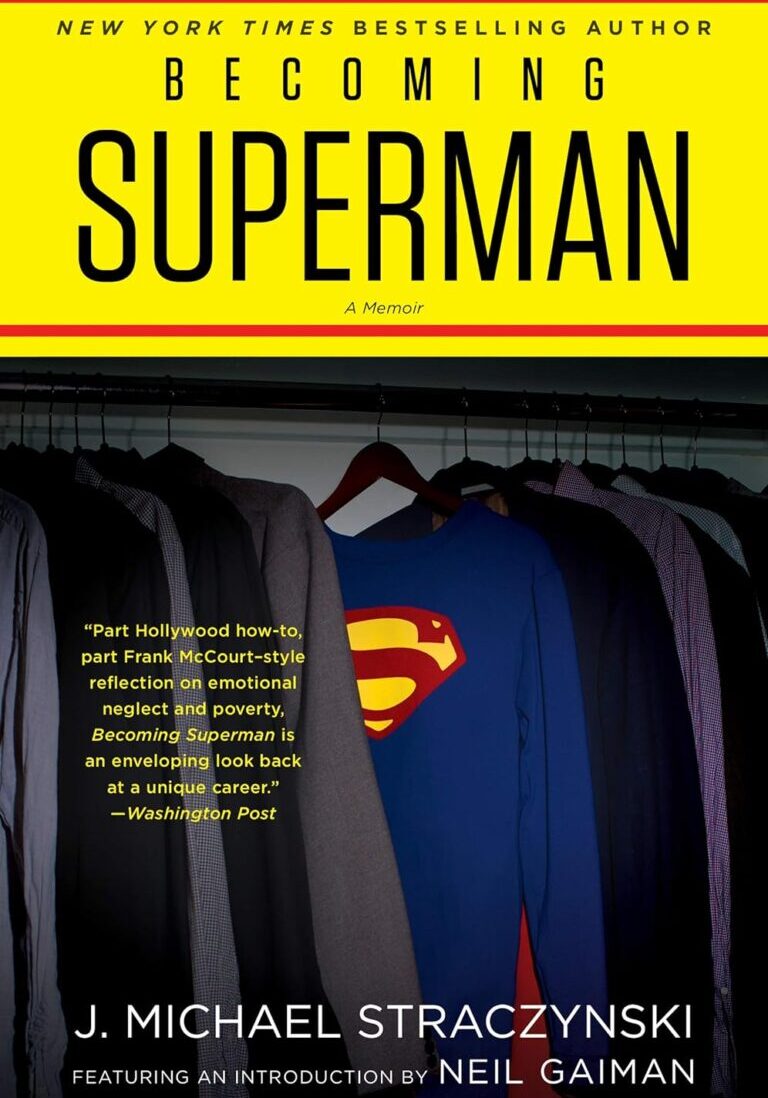
Becoming Superman by J Michael Straczynski
Our Summary
An astonishing bio of an accomplished (mainly) screenwriter.
What I learned From It
Never to feel sorry for myself. To keep doing it and never give up. To learn, learn, learn. A fantastic psychology of writing book that every writer serious about making it would benefit from imo.
Trey
[maxbutton id="1" url="https://amzn.to/3uuYjCN" ]
[maxbutton id="2" url="https://amzn.to/3Gd7Lx2" ]
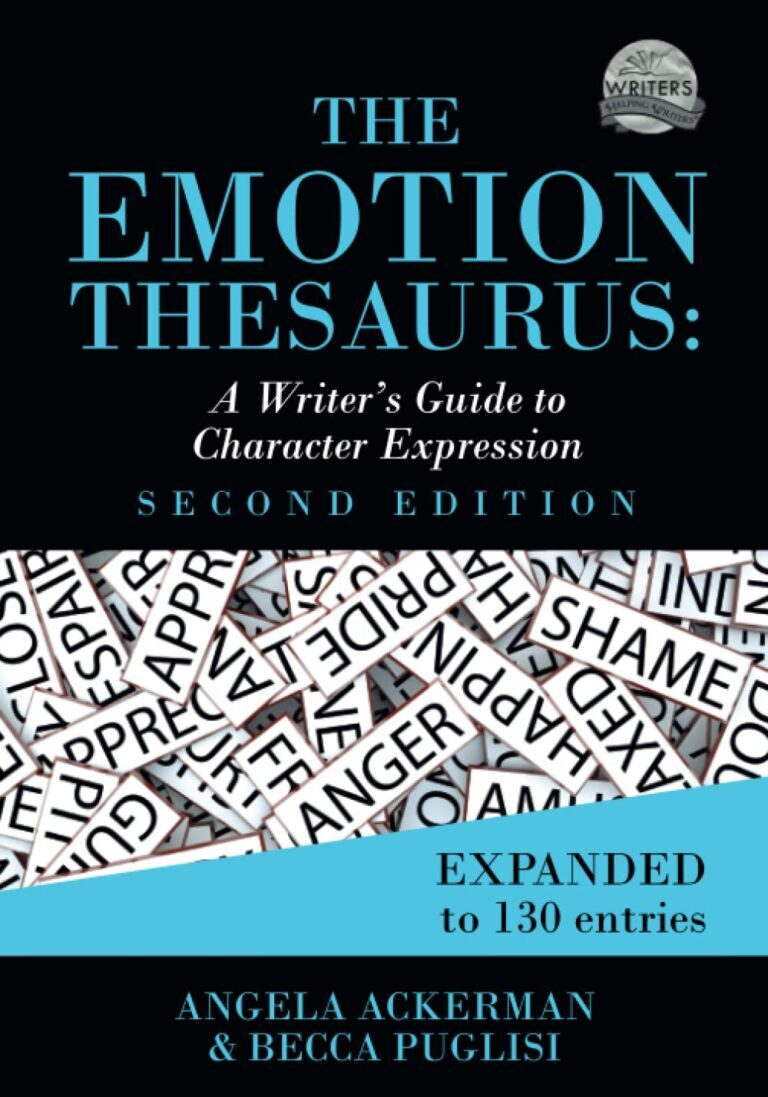
The Emotion Thesaurus by Angela Ackerman And Becca Puglisi
Our Summary
A great one to dip in and out of if you find yourself repeating yourself in terms of showing-not-telling emotions. Gives lots of examples.
What I learned From It
Ideas to avoid repetition and alternative ways to say the same things if emotional reactions are repeated through the story.
Claire G
[maxbutton id="1" url="https://amzn.to/3RcCK2A" ]
[maxbutton id="2" url="https://amzn.to/46tYtYm" ]
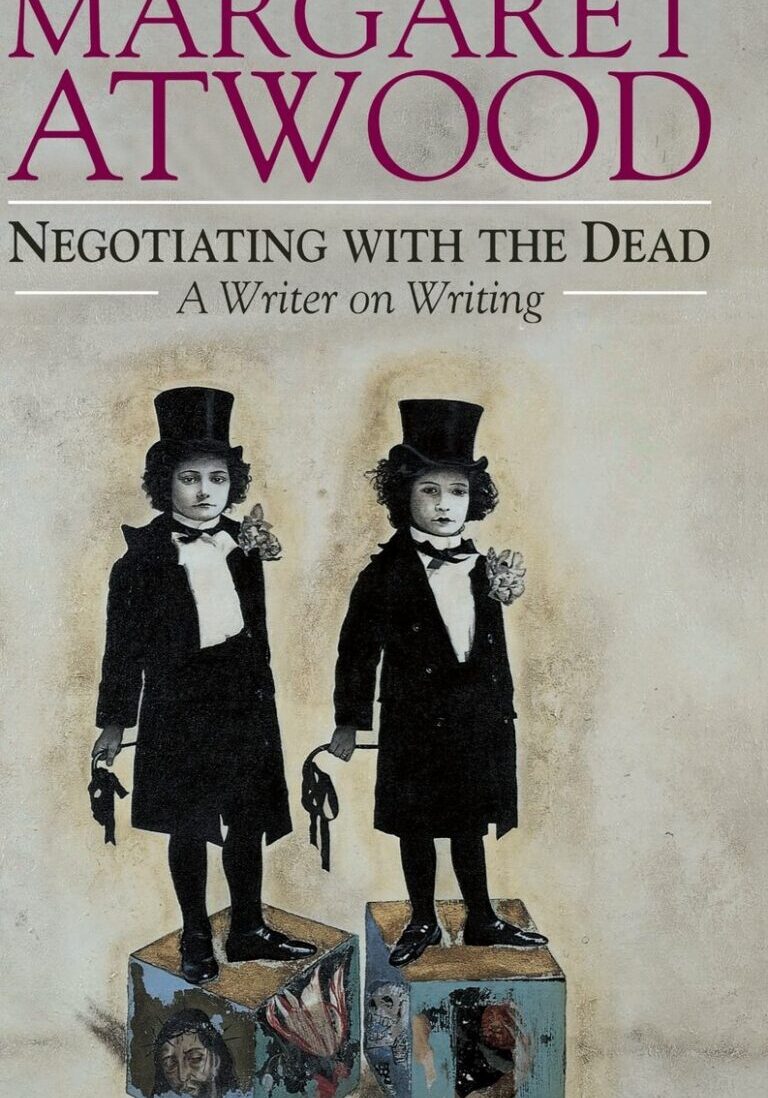
Negotiating With The Dead by Margaret Atwood
Our Summary
A collection of essays by a renowned writer on aspects of writing theory and how she became a writer. Entertaining and informative especially if you are already an Atwood fan.
What I learned From It
This isn't a 'how to write' book - it is about 'writing' in a far more general sense. It gave me plenty of food for thought.
Liz Brown
[maxbutton id="1" url="https://amzn.to/3uuCzXL" ]
[maxbutton id="2" url="https://amzn.to/47p1R7T" ]
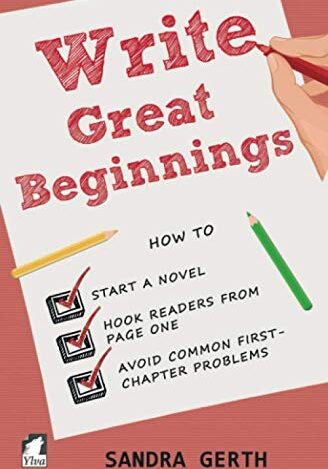
Write Great Beginnings by Sandra Gerth
Our Summary
Defines "a beginning" and lists do's and don'ts together with pointers on how to achieve the first and avoid the second. Offers exercises based either on an ongoing manuscript or a published work.
What I learned From It
This is a comprehensive and clear overview written in simple terms. The points it makes are self-contained so you can zoom directly to whatever concern you have about the beginning of your work.
Jeanette
[maxbutton id="1" url="https://amzn.to/47lA5JA" ]
[maxbutton id="2" url="https://amzn.to/40T7iJP" ]
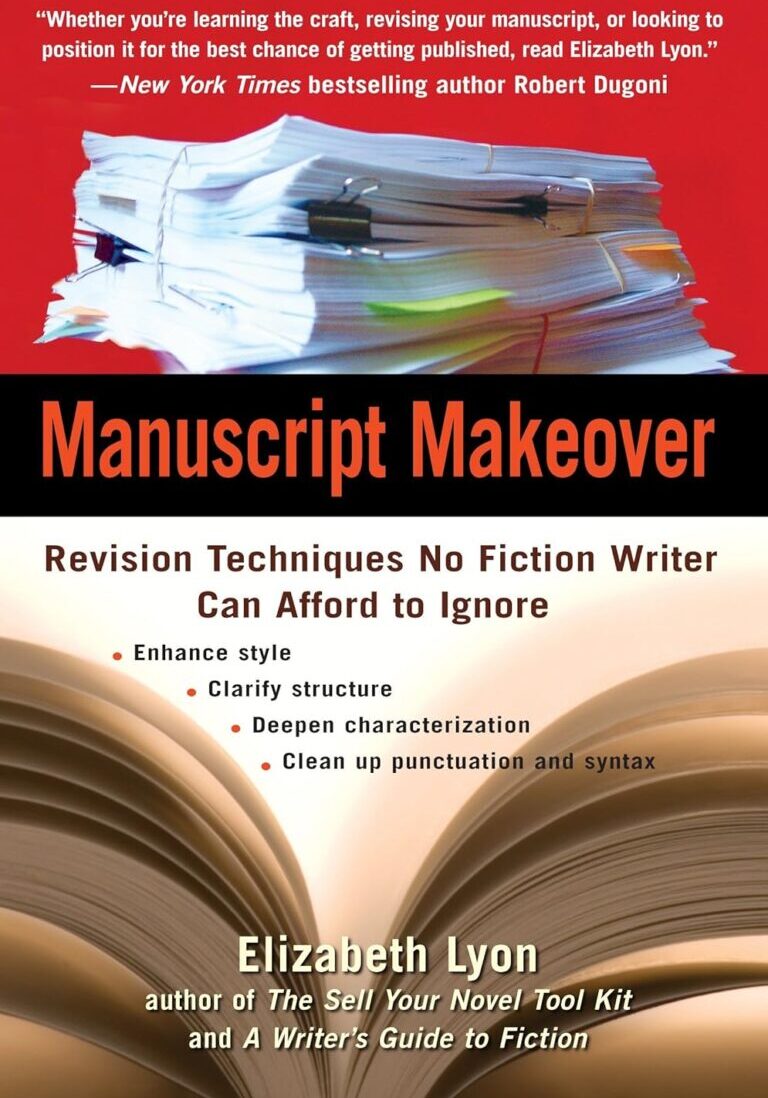
Manuscript Makeover: Revision Techniques No Fiction Writer Can Afford to Ignore by Elizabeth Lyon
Our Summary
Presents in a highly readable, organized way all of the elements of a novel, from the significance of genre and common to lesser-known structures to all the aspects of a writers' craft. Briefly and with amazing clarity, describes potential problems which might arise from each, then follows with suggestions for how to "fix" them. Chapters are organized around particular craft elements and issues, so readers can choose which parts of the book to focus on relative to their personal writing needs. Review checklists of problems and their solutions are included at the end of each chapter.
What I Learned From It
I have now read easily a dozen books on how to write a novel, plus several on revision, and while I've taken away something of value from each, not one of them has given me the breadth of awareness and practical understanding of craft elements, from A to Z and beyond, that this jam-packed, wisely conceived and clearly presented book has given me. It's not prescriptive, nor does it follow the latest trends in fiction writing. Ms Lyons doesn't think she has 'the' answer or make suggestions that make a writer feel like a square peg being forced into a round hole, but rather shows writers how to consider each issue in light of their own writing style, voice and vision for their novel. Check out the Amazon reviews; I'm not the only one who loves this book. It's a keeper! And one to be used over and over.
CarolMS
[maxbutton id="1" url="https://amzn.to/3SYVT9x" ]
[maxbutton id="2" url="https://amzn.to/3MZVwrv" ]
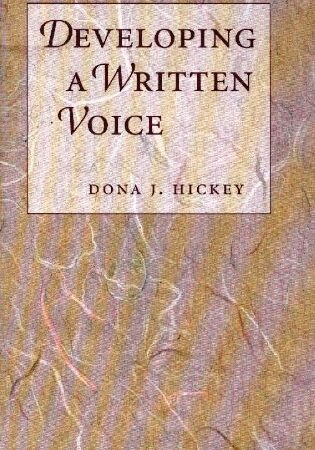
Developing A Written Voice by Dona J Hickey
Our Summary
This dense work focuses on a directed attitude towards developing Voice. From conversational to formal, snarky to respectful, it's all about word choice and the way that language will both sound and convey meaning. The same words with the same meaning can nevertheless be ordered in different ways with a difference in the way they are perceived, the it is this that comprises 'voice'. Replete with concrete examples and pertinent exercises, this book is hard to find but well worth the search.
What I learned From It
All writers have a voice, but not all work at developing it - or even possess a framework for it. This book provides a framework and it's a book I will continue working through for years to come.
Dan Payne
[maxbutton id="1" url="https://amzn.to/3GwJS3X" ]
[maxbutton id="2" url="https://amzn.to/3MWcxmr" ]
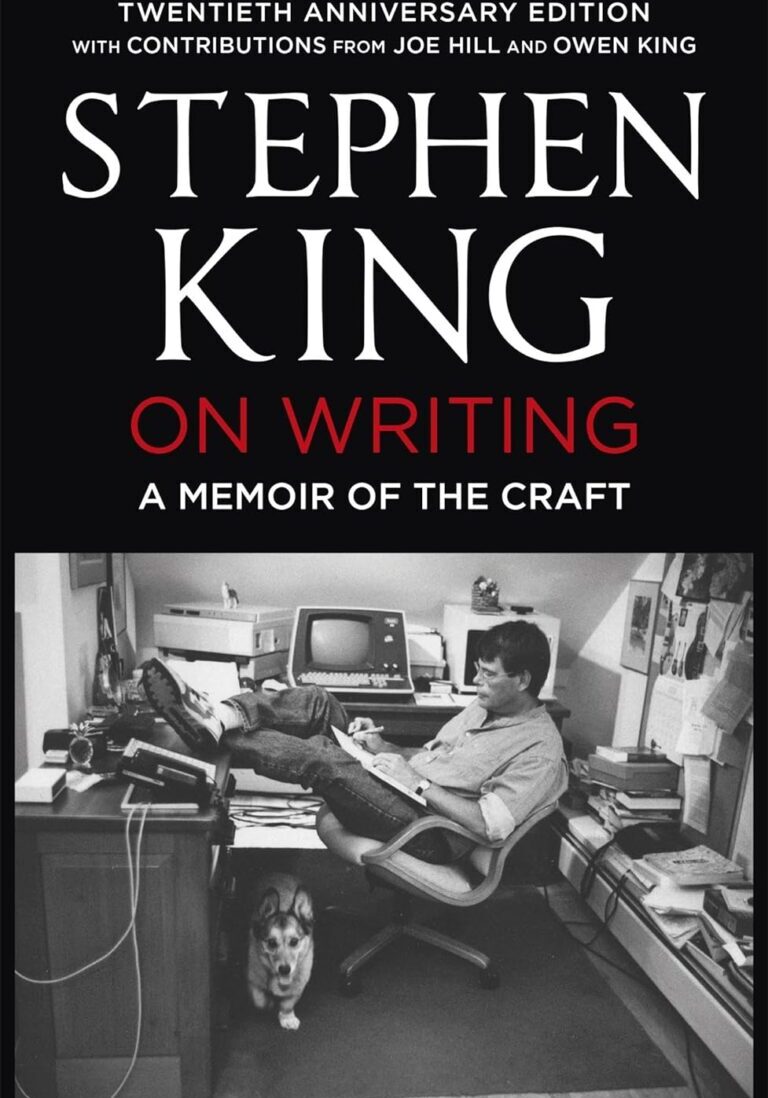
On Writing by Stephen King
Our Summary
Leave it to the literary rock star to compose a craft book that’s as entertaining as a good novel. “This is a short book because most books about writing are filled with bullshit,” King writes. What follows is a witty, practical, and sometimes poignant guide that is refreshingly devoid of the aforementioned BS. King relates his personal story of becoming a writer, then offers a “toolkit” of clear advice about everything from dialogue and descriptive passages to revisions and the head game. And there’s more: tips for beginning writers on submitting work for publication, a mark-up of one of King’s own manuscripts, and a reading list. You might not be awake at 3 a.m. turning these pages, but we promise On Writing will open your eyes to essential tricks of the trade.
What I learned From It
Just write a story readers will read.
James Charles
[maxbutton id="1" url="https://amzn.to/3MVOW5m" ]
[maxbutton id="2" url="https://amzn.to/46IadGV" ]
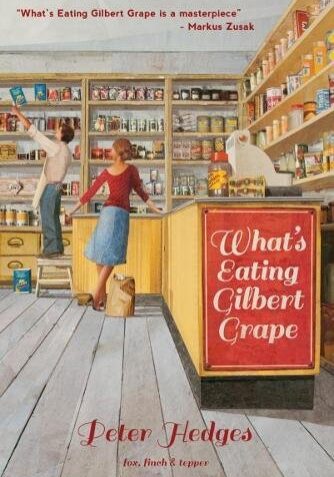
What’s Eating Gilbert Grape by Peter Hedges
Our Summary
This is a coming-of-age fiction book about a 24-year-old boy who feels stuck in his small town taking care of his overweight mother and special needs brother, while it feels like his other siblings and friends have moved on outside.
What I learned From It
I really learned alot about voice and character from reading this book. Gilbert Grape is an incredibly flawed character and can be pretty cruel at times, but I loved him. He emotes in ways that feel unconventional to a reader/are far from cliche. Rather than crying when he's sad, he takes it out through acting out at work or little internal jabs at other people. His relationship with his mother and siblings is fascinating to read, because he never says exactly how he feels about them, but his attitude changes throughout the book. Its just a really subtle way to draw a reader in and attach them to a character, even if he can be a jerk.
tmartini
[maxbutton id="1" url="https://amzn.to/3MRLfOc" ]
[maxbutton id="2" url="https://amzn.to/3R9cQwC" ]
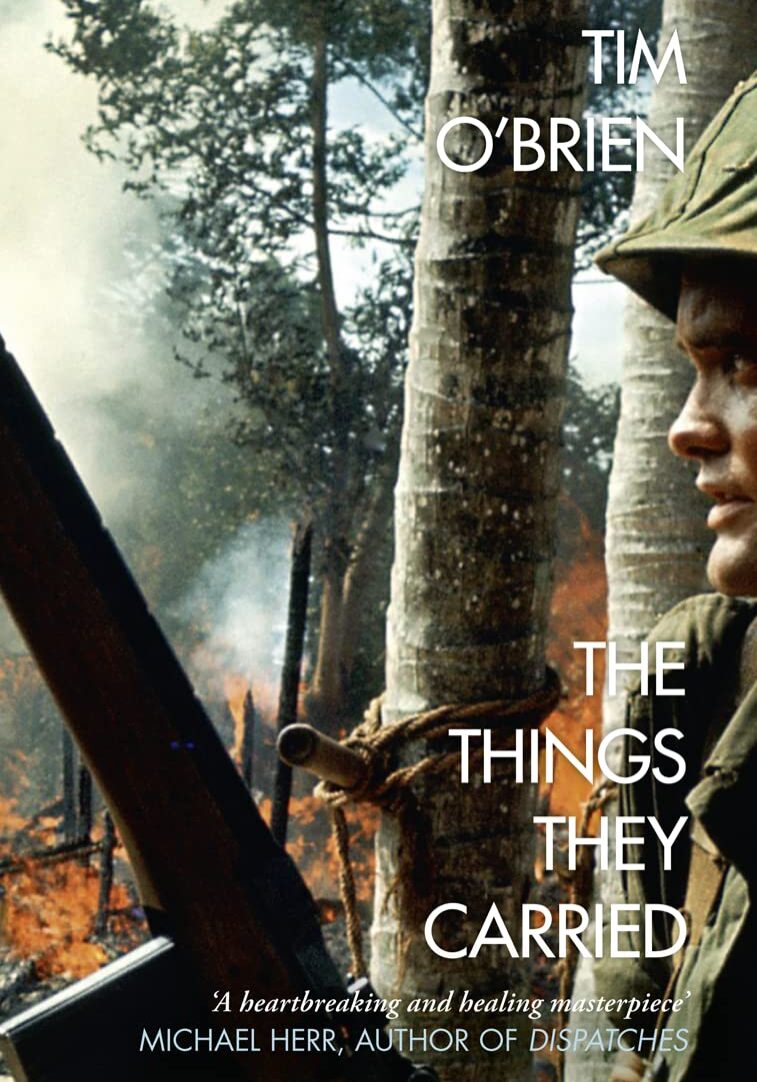
The Things They Carried by Tim O’Brien
Our Summary
a series of essays and short stories on the nature of story
What I learned From It
It does a great job of explaining the nature of truth in story. there's a great section which notes that the factually correct war story is not the really true one,
MattScho
[maxbutton id="1" url="https://amzn.to/3uA2rRH" ]
[maxbutton id="2" url="https://amzn.to/40T0KuL" ]
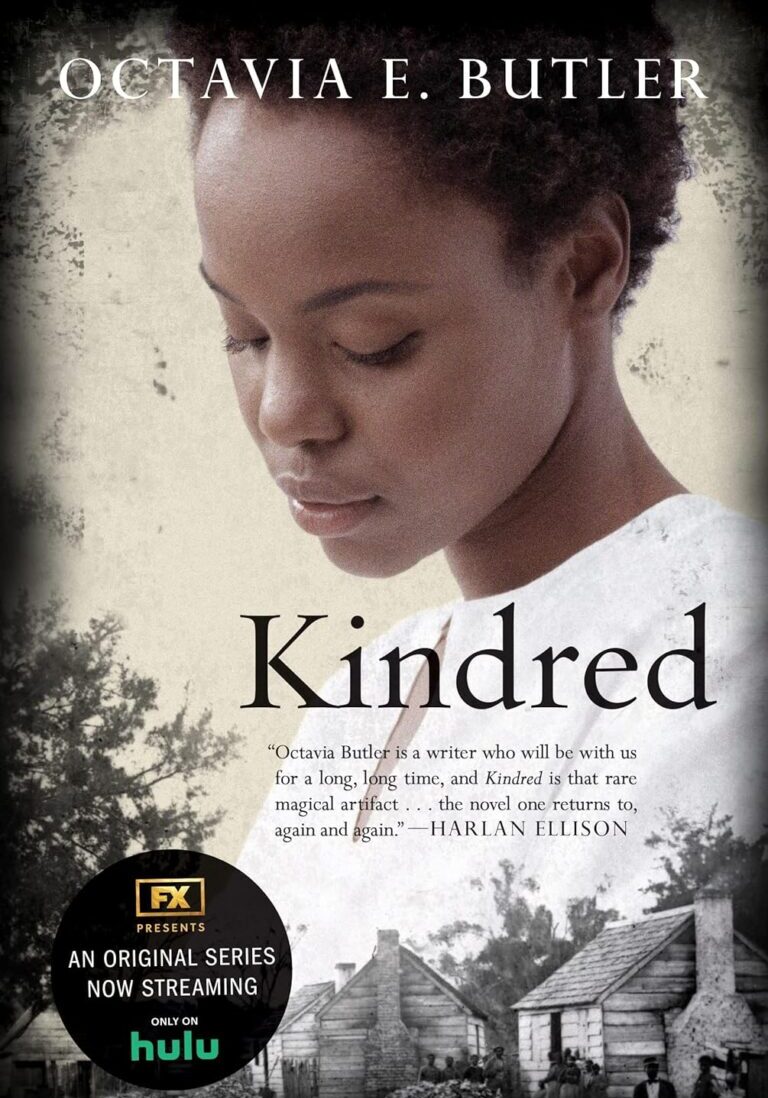
Kindred by Octavia Butler
Our Summary
Despite being written 45 years ago, it feels like a modern work. It’s at once Sci-Fi, Fantasy, Speculative, and even Literary. Everything a writer needs to know about sparse and impactful prose can be found in these pages.
What I Learned From It
Pithy writing has power. Take a look at the first paragraph…
“I lost an arm on my last trip home. My left arm.”
We don’t know why Dana lost her left arm - or where she was when it happened. However, most of us would keep on reading to find out.
The minimalist approach doesn’t end with the hook. Throughout the novel, the writing is direct and matter-of-fact. There’s no purple prose to distract the reader.
Butler's worldbuilding is likewise utilitarian. She sets the stage with everything we need to know, and little else. If something more is needed to move a scene forward, she’ll drop it in later so readers aren't overwhelmed.
There is brutality in this world, and Kindred doesn’t shy away from it. Slavery in the US was a cruel business. Still, she conveys the humiliation and suffering of human bondage with an economy of words. There’s no need for intricate detail.
There’s also no need to explain why slavery is wrong. Butler trusts her readers enough not to lecture them.
The author falls into a common conceit of the era - chapter titles. However, she doesn’t abuse that conceit. Each title is short and to the point with neither wit nor irony. There are no spoilers, either. The meanings are clear upon finishing a respective chapter.
Kindred has both a prologue and an epilogue. Few books need one, and even fewer need both. However, this story demands both. There is nothing extraneous about their inclusion here. Unlike many novels, neither feels bolted on to the main narrative. The prologue hooks the reader while the epilogue provides the necessary denouement.
Not everyone agrees Kindred is Science Fiction. If it’s not, there's a lot here for Sci-Fi readers (including myself) to like. If it is Science Fiction, the characters and dialogue are much more realistic than most contemporary works.
Most importantly - this book remains relevant to readers and authors alike.
Bloo✒️
[maxbutton id="1" url="https://amzn.to/3sNpDvv" ]
[maxbutton id="2" url="https://amzn.to/3MY4VQc" ]
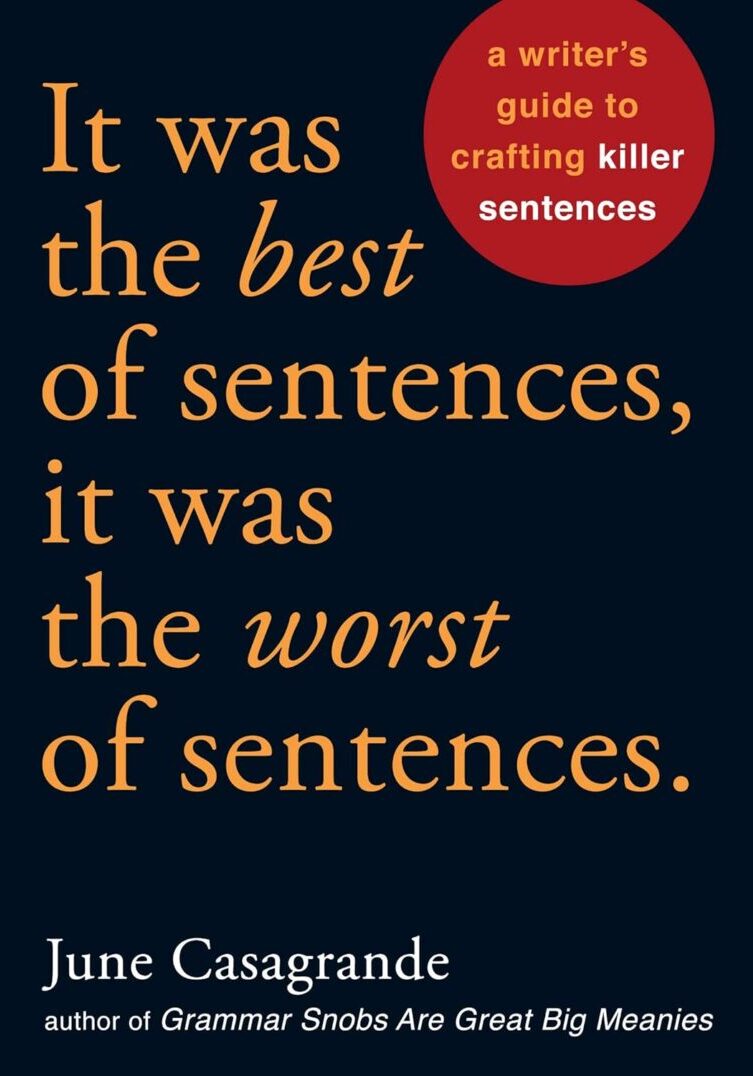
It Was The Best Of Sentences, It Was The Worst Of Sentences by June Casagrande
Our Summary
Gets into the line level of sentences and what order you need to put words so you can help a reader follow what you put down on paper (or computer). From phrases, clauses, subordination, long v short sentences tense, tense, prepositional phrases, danglers and much more. Perfect for reacquainting yourself with the nuts and bolts of grammar.
What I learned From It
I learnt how to consider what order words need to be in, and how writing them out of order confuses the reader. Now every sentence I construct considers the reader first.
RK Wallis
[maxbutton id="1" url="https://amzn.to/3Rcg02K" ]
[maxbutton id="2" url="https://amzn.to/3GaoP6S" ]
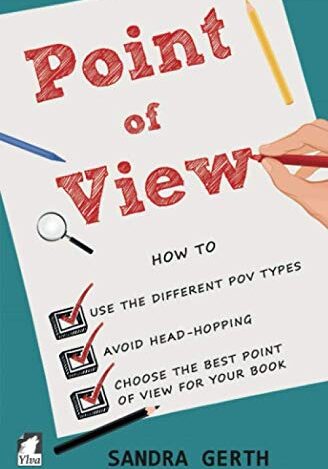
Point Of View by Sandra Gerth
Our Summary
A clear, informative guide to the different types of POV with tips on choosing the best POV for your own manuscript. Offers exercises focused either on your work in progress or on a published book.
What I learned From It
I saw how to mix some POV, how and why to avoid head-hopping and picked up tips on internal monologue.
Jeanette
[maxbutton id="1" url="https://amzn.to/3GcXzol" ]
[maxbutton id="2" url="https://amzn.to/3sMdJSx" ]
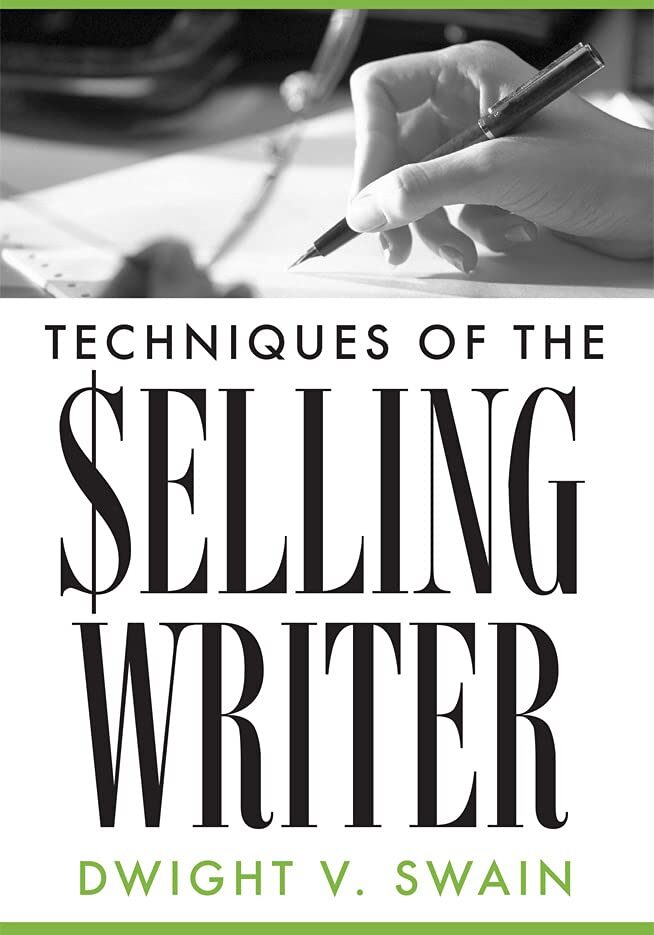
Techniques Of The Selling Writer by Dwight V. Swain
Our Summary
First published in 1965, Swain's book is a no-nonsense, broad-brush instruction manual for beginners that shows you how to construct a commercial story.
What I learned From It
The basic shape of commercial fiction (and how unchanging that shape has been for more than half a century). Every other writing manual I've ever read has felt like a retelling or offshoot of this book.
Rich.
[maxbutton id="1" url="https://amzn.to/47nnrtN" ]
[maxbutton id="2" url="https://amzn.to/49MnEbr" ]
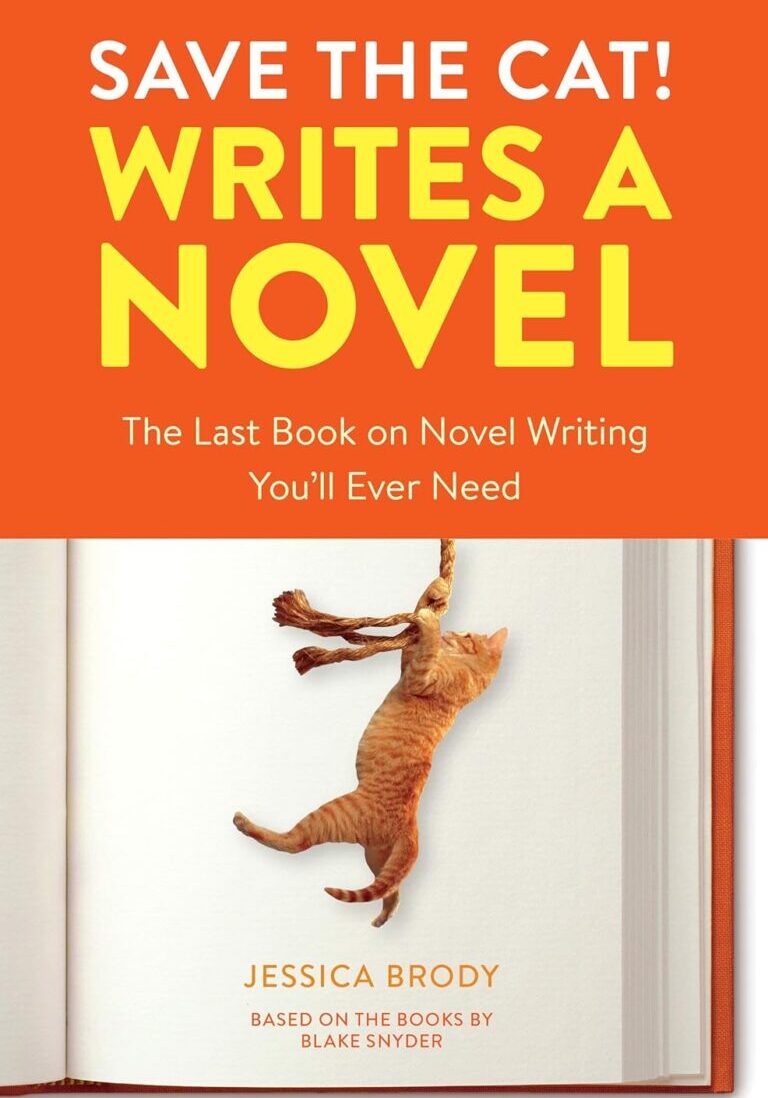
Save the Cat Writes a Novel by Jessica Brody
Our Summary
Great for understanding genre, theme, 3 act structure. Very well explained. Lots of examples of story beats from popular books. Even looks at pitches and loglines.
What I Learned From It
I found the famous beat sheet really helpful in deciding when to do what in my novel. The biggest thing for me was understanding structure enough to keep those pages turning
Hannah F
[maxbutton id="1" url="https://amzn.to/49PDjqw" ]
[maxbutton id="2" url="https://amzn.to/47HLROc" ]
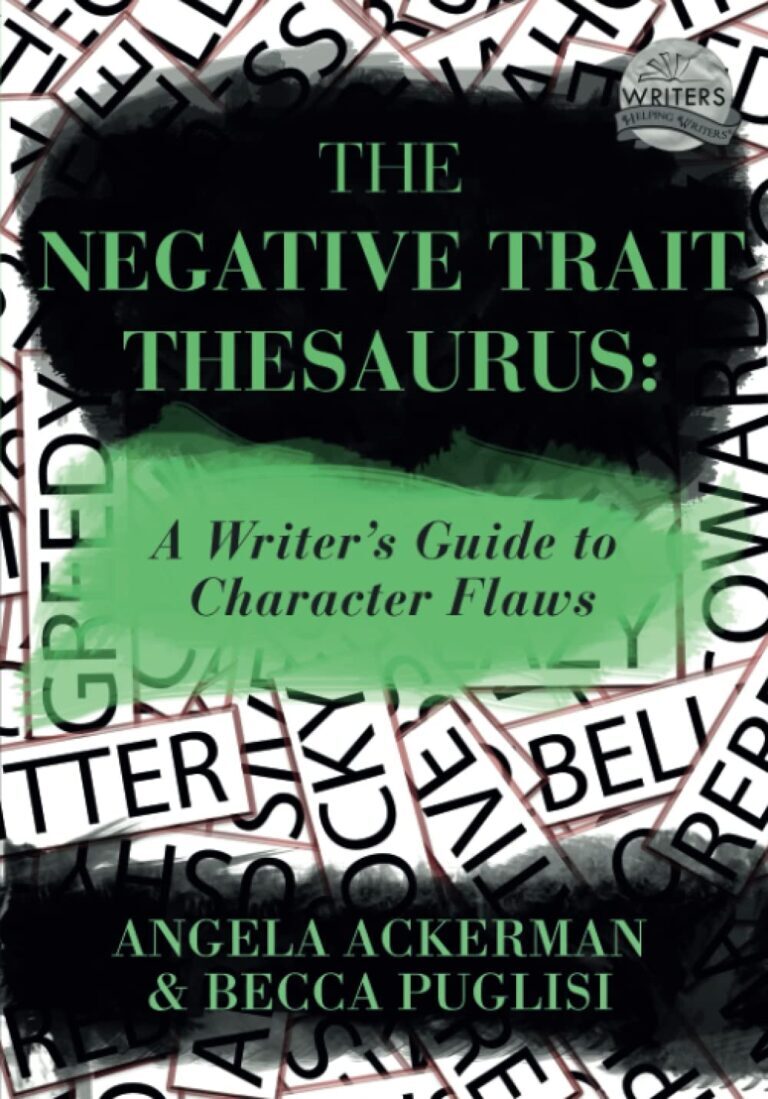
The Negative Trait Thesaurus by Angela Ackerman And Becca Puglisi
Our Summary
Lists character traits to help you generate different types of characters and how these traits might manifest. Useful in conjunction with The Positive Trait Thesaurus.
What I learned From It
Helped me to write characters with more depth and think of a wider range of character types for my books.
Claire G
[maxbutton id="1" url="https://amzn.to/40TfObY" ]
[maxbutton id="2" url="https://amzn.to/3sLiNGQ" ]
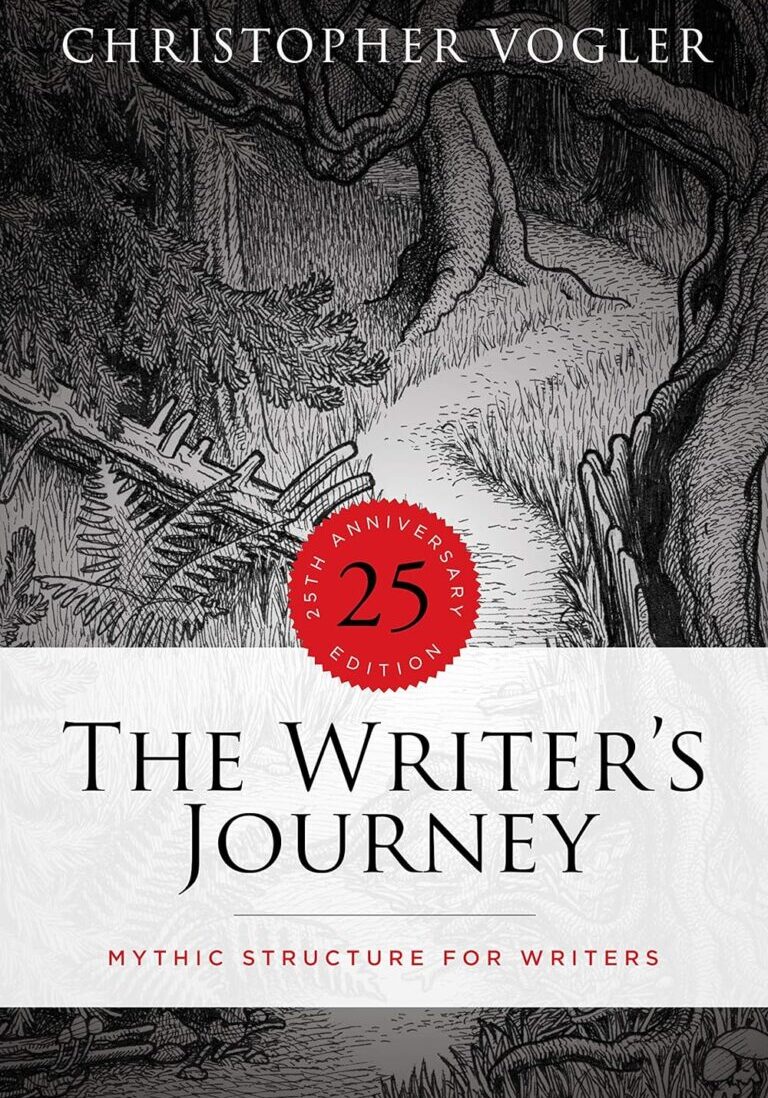
The Writer’s Journey by Christopher Vogler
Our Summary
This is Hollywood story consultant Vogler's distillation of Campbell's The Hero With A Thousand Faces. That is, it's a book on comparative mythology turned into a writing manual about the "Hero's Journey".
What I learned From It
See description in previous post of Campbell's The Hero With A Thousand Faces.
Rich.
[maxbutton id="1" url="https://amzn.to/40Qh7by" ]
[maxbutton id="2" url="https://amzn.to/3QQsziQ" ]
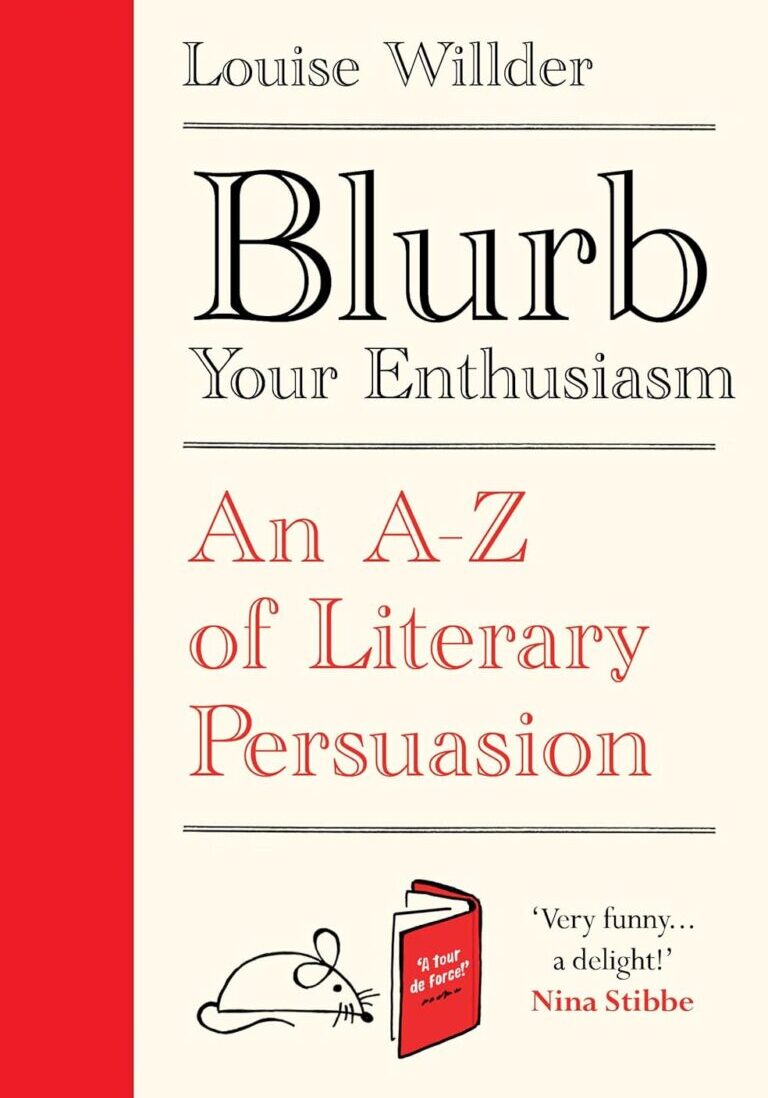
Blurb Your Enthusiasm: An A To Z Of Literary Persuasion by Louise Willder
Our Summary
How different blurbs work in different genres from an insider in the business (Willder is a Penguin books blurb writer). Lots of great examples in each genre in terms of what does and doesn't work and why. Willder argues every word matters in a blurb, and so each has to count. Thus, she offers ways to do this.
What I learned From It
How to write a successful blurb from an experienced blurb writer. That is, what will appeal to readers in different genres and why. Use of specific words and phrases that attract readers. The multitude of different examples proved helpful as comparisons to craft your own blurb. As the book is written with humour, it's easy to read. You can also flick to different sections as per the genre you're working in, but I'd recommend you read the whole books to get the full picture.
Rachael Burnett
[maxbutton id="1" url="https://amzn.to/3RczNiw" ]
[maxbutton id="2" url="https://amzn.to/3RbgTZh" ]
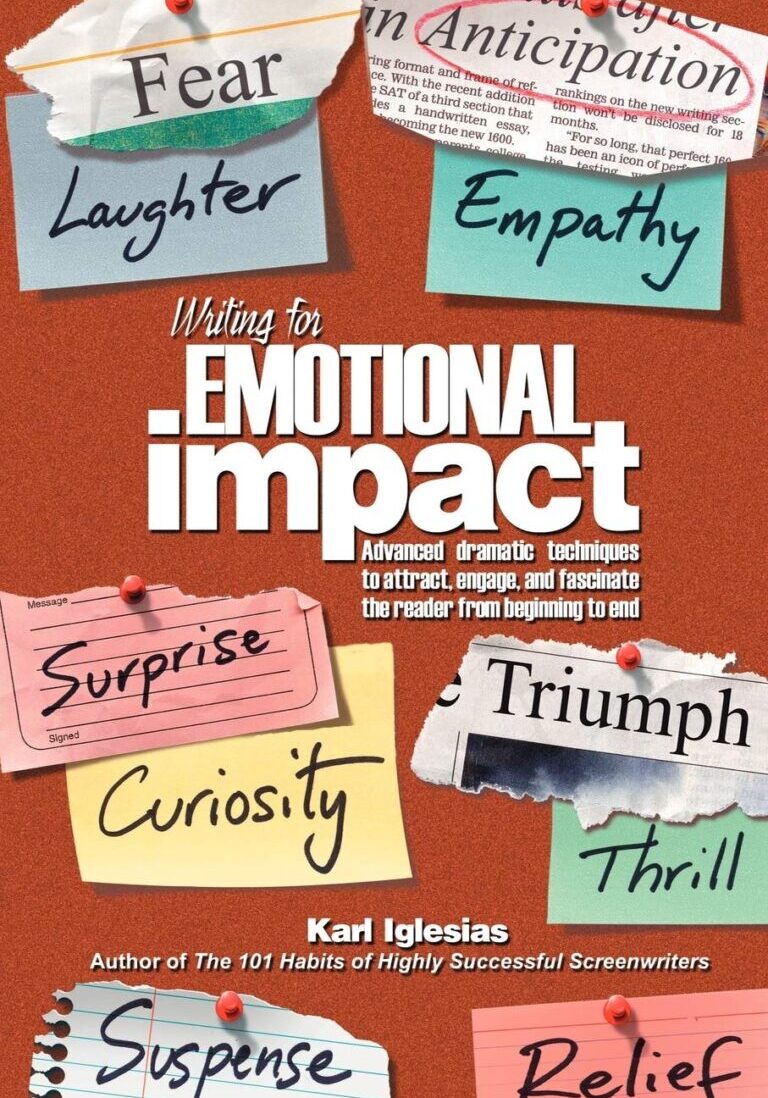
Writing for Emotional Impact by Karl Iglesias
Our Summary
It delves into the psychology of the reader and techniques to create emotional scenes within your storytelling, including in dialogue.
What I Learned From It
This author's way of teaching the craft really chimes with me. It's quite an expensive book but worth it in my opinion. For me, this book takes me into a layer above plot and structure.
Hannah F
[maxbutton id="1" url="https://amzn.to/47N7jRN" ]
[maxbutton id="2" url="https://amzn.to/49QTT9e" ]
Basic Membership Is Free.
Basic membership is sufficient for many writers.
Benefit from unlimited access to the Writing Lab for critiques using the Litopia® Method… Start your own writer’s blog on our powerful platform… And of course, maximum support from the oldest and friendliest community for writers on the ‘net.
Full Membership Is Only $149.95 For An Entire Year
Everything in Basic Membership plus unlimited access to all our writing seminars and unlimited access to our weekly live Writers’ Huddles for personal mentoring & coaching.
